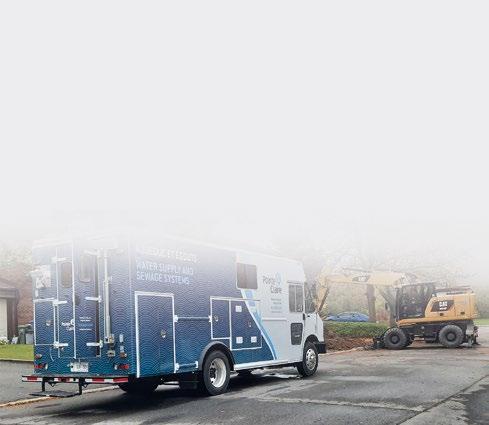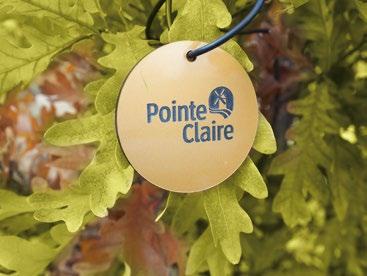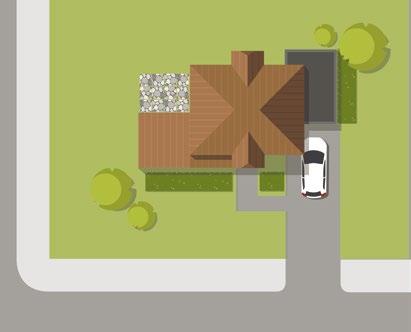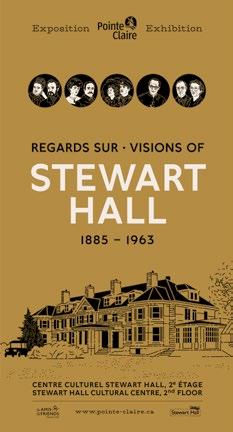
6 minute read
ENVIRONMENT
ECOCENTRES AND OTHER COLLECTIONS A second life for recycled material Recycling, ecocentres, bulky items, collection boxes for small electronic appliances. How are the objects from the various collections recycled?
At the sorting centre, the items are divided according to their material and then separated by category before being sent to companies that can give them a second life. FOR EXAMPLE:
The process is similar for bulky items at the ecocentres, where items are sorted and disassembled as needed to separate the materials. They are then sent to companies that can recycle or repair them to extend their useful life.
36 x 1 x
duvet filling
629 x 1 x
garden chair
6 x
575 x 1 x
toilet paper
1 x
grocery chart A NEW ENVIRONMENT AND SUSTAINABLE DEVELOPMENT ADVISORY COMMITTEE
In a desire to continue its efforts to make Pointe-Claire a city that places sustainable development at the top of its priorities, both through its municipal actions and by promoting practices that contribute to protecting the environment among citizens, the City announced in March the members who will form the City of Pointe-Claire’s first Environment and Sustainable Development Advisory Committee. This working group made up of two members of City Council and citizens will provide advice and recommendations to City Council on matters pertaining to the environment and sustainable development.
Trivia game on waste sorting
The next time you visit City Hall, ask for your trivia game, a fun and educational tool on reducing at the source and properly managing waste.
ATTRACTING MONARCHS TO YOUR GARDEN
Each spring, monarch butterflies migrate from their wintering grounds down south to here. Wherever they go, they carry pollen grains with them, helping plants and flowers reproduce. This orange, white and black butterfly has become iconic in North America. Sadly, the habitats that can support it are in decline. To help protect the monarch, add milkweed and native, nectar-bearing plants to your flower beds. Place your garden in a sunny location that is sheltered from high winds and maintain it in an eco-friendly manner by using compost rather than chemical fertilizers and tolerating insects. This will provide monarch butterflies with a valuable egg-laying site and food source!

ENVIRONMENT
URBAN FAUNA Should we feed animals in urban areas?
While we may think we are doing the right thing, we should not feed small mammals, including squirrels or large birds, such as ducks. We are not doing them any favours! This reinforces their dependence on humans and affects their chances of survival in the wild. When animals stay in an environment, it is because it provides them with everything they need!
WHERE TO PLANT NATIVE PERENNIALS TO ATTRACT POLLINATORS
Full sun • Common evening primrose • Common milkweed • Common sneezeweed • False sunflower • Pearly everlasting • Seaside goldenrod • Slender mountain-mint Sun and semi-shade • Blue vervain • Cut-leaved coneflower • Hairy beard-tongue • Harlequin blue flag • Hoary vervain • New England aster • Red columbine • Spotted Joe • Pye weed • Swamp milkweed • White turtlehead • Wild bergamot • Wild strawberry Semi-shade and shade • Bloodroot • Bunchberry • Canada violet • Canadian wild ginger • Heart-leaved aster • Heart-leaved foamflower • Large false • Solomon’s seal • Large-leaved aster • Northern maidenhair fern • Red baneberry • Two-leaved miterwort • Zigzag goldenrod REMEMBER YOUR BAG! Running some errands?
Don’t forget to bring your shopping bag. Whether it’s soft or rigid, cotton or a backpack, whether you bought it yourself, received it as a gift, or made it, the important thing is to bring it. Let’s help make Pointe-Claire an even greener city!
A LOOK BACK ON THE ZERO-WASTE CHALLENGE
From September 2020 to January 2021, nine families participated in the City of Pointe-Claire’s first Zero-Waste Challenge. This experience led them to adopt better practices in waste management in response to new environmental challenges.
Learn more about zero-waste living by visiting the Zero-Waste page on the City’s website. • 63% of families met or exceeded their waste reduction target. • Three families reduced their recyclables, one of them by more than 50%.
•On average, the families reduced their household waste by 44%.
What they said:
“With just a few changes and some pre-planning, it’s easy to significantly reduce waste.”
“The Challenge was eye-opening. Not only did we learn about reducing waste, but we also learned about essential purchases.”
“We want to continue the journey. Our goal would be to eliminate plastic from our lives as much as possible and reduce our consumption in general.”
“We were already taking action to reduce our impact. The challenge accelerated this process, it motivated us to reach our goals faster.” • They also reduced their organic waste production by 11%, which means less food waste.
“It’s easy to make your own household products with ingredients you have at home. They work well, are inexpensive and are better for your health.”
“We challenged ourselves to eliminate single-serve snacks. It led us to cook our own snacks as a family, eat well by eliminating processed foods from our lunch boxes and reduce packaging.”
“Apart from managing the waste we generate and reducing it, it was more difficult to change our habits, but these are the most rewarding changes. In particular, we always check to see if we can find a second-hand product rather than buying a new one.”
ENVIRONMENT
DRINKING WATER, A RESOURCE TO BE PROTECTED Drinking water is a precious resource that we need to preserve! It is therefore important to take action to avoid wasting it:
•Purchase a rain barrel. You will have your own water source for washing the car and watering your flowerbeds. It is available at the City Hall multiservice counter for $40. • Learn to appreciate longer grass, which locks in moisture and reduces the need for watering. When necessary, water in the morning or evening to reduce evaporation. • Use a broom and bucket instead of a water hose to clean your front walk. • If you have a pool, use a pool cover to reduce evaporation.
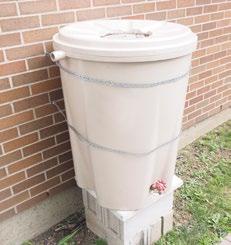
WATER TAX
Every summer, a team goes around the streets of Pointe-Claire taking water meter readings in residential buildings with six units or less to determine annual drinking water use and issue a bill to the owners based on consumption. This pay-per-use formula promotes individual efforts focused on eco-responsible use and the preservation of this valuable natural resource. In September, owners will receive their annual bill. The rate for 2021 is $0.9651/m³. Payment is required within 30 days. PRACTISING GRASS RECYCLING
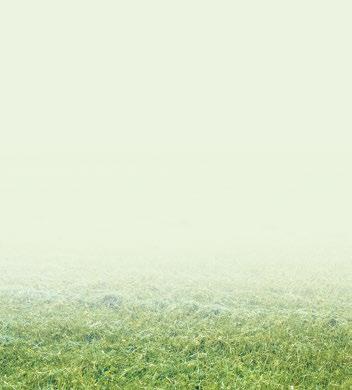
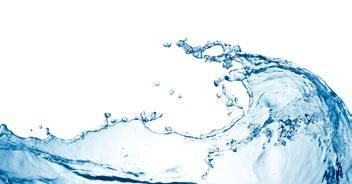
Grass recycling is an eco-friendly practice that involves leaving freshly cut grass clippings in place to decompose on the ground. The clippings act as a natural fertilizer and feed your lawn—without cost or effort! This practice provides many benefits: • Preserves the lawn’s moisture • Nourishes the lawn naturally • Reduces the volume of waste in your organic waste bin • Reduces greenhouse gas emissions, since this waste does not need to be transported • Helps strengthen the lawn • Reduces watering


